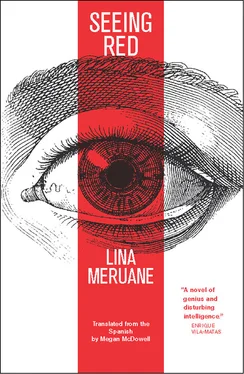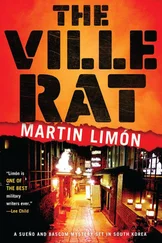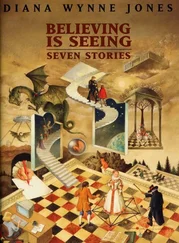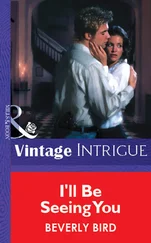Lina Meruane - Seeing Red
Здесь есть возможность читать онлайн «Lina Meruane - Seeing Red» весь текст электронной книги совершенно бесплатно (целиком полную версию без сокращений). В некоторых случаях можно слушать аудио, скачать через торрент в формате fb2 и присутствует краткое содержание. Год выпуска: 2016, Издательство: Deep Vellum Publishing, Жанр: Современная проза, на английском языке. Описание произведения, (предисловие) а так же отзывы посетителей доступны на портале библиотеки ЛибКат.
- Название:Seeing Red
- Автор:
- Издательство:Deep Vellum Publishing
- Жанр:
- Год:2016
- ISBN:нет данных
- Рейтинг книги:3 / 5. Голосов: 1
-
Избранное:Добавить в избранное
- Отзывы:
-
Ваша оценка:
- 60
- 1
- 2
- 3
- 4
- 5
Seeing Red: краткое содержание, описание и аннотация
Предлагаем к чтению аннотацию, описание, краткое содержание или предисловие (зависит от того, что написал сам автор книги «Seeing Red»). Если вы не нашли необходимую информацию о книге — напишите в комментариях, мы постараемся отыскать её.
This powerful, profound autobiographical novel describes a young Chilean writer recently relocated to New York for doctoral work who suffers a stroke, leaving her blind and increasingly dependent on those closest to her. Fiction and autobiography intertwine in an intense, visceral, and caustic novel about the relation between the body, illness, science, and human relationships.
Lina Meruane
Seeing Red — читать онлайн бесплатно полную книгу (весь текст) целиком
Ниже представлен текст книги, разбитый по страницам. Система сохранения места последней прочитанной страницы, позволяет с удобством читать онлайн бесплатно книгу «Seeing Red», без необходимости каждый раз заново искать на чём Вы остановились. Поставьте закладку, и сможете в любой момент перейти на страницу, на которой закончили чтение.
Интервал:
Закладка:
darkened highway
And we headed back to Santiago on a highway where night had fallen at six in the evening. What did you think of Genaro? I asked, my bare feet over the heater. What about you? And the questioning stopped there. Already Genaro was crawling off with his lover toward the past that was a select social club; we were fleeing that closed circle, we were going forward and not looking back, we were present, hurtling into the future at hundreds of miles per hour along a road that had pretensions of being a highway. I opened the window and sniffed the air for the singed smell of burning. But there were no garbage bonfires at that hour. Not even flies. But we were traveling with a swarm in our heads, going back over conversations that wouldn’t be repeated, anticipating situations. For an instant I had the impression that Ignacio was nodding, though I also thought he might be shaking his head no. I heard him shift ever more clumsily, felt him slow down sharply, put on the brake; I noticed we were zig-zagging. What’s happening? Why are you speeding up and slowing down? It’s pitch black, there’s fog, you can’t see a single light out there, and, as if that weren’t enough, I can’t see a damn thing in the dark. So don’t go weaving in and out and passing cars. But I’m not passing, that’s not it, said Ignacio, raising his voice. It’s just that I don’t understand a thing in this goddamned country, the road just melted into a high-speed throughway, and we almost ended up, just now, stuck under a wagon — a wagon pulled by cows on a highway! Explain that to me! Cows? I sighed, buying time to think. Cows or oxen or donkeys or idiot peasants or whatever you call those damned animals that almost killed us! They didn’t have lights and they were going very, very slow through an impossible fog. And wait, joder, I can’t believe it, there ahead of us is a truck right across the road, trying to make a U-turn! Are all Chileans crazy? Crazy, I murmured cynically, of course we’re crazy, so better be careful with us. I must be even crazier, he said, shifting badly for the umpteenth time, braking, going around the truck’s tail. Crazy to go on vacation with a blind woman. I bristled at Ignacio’s head-on blow, but he started to laugh and that was his way, bewildering as it was, of apologizing for the anger he felt sometimes, for feeling sometimes like a prisoner of the Chile that was me, and then I also started to laugh and cry a little from the laughter and above all from exhaustion. Ignacio went on reading the signs and driving in a straight line, and only when we were getting close to the city did I have to tell him what would be the next marker to look for, which exit, which ascent, which right turn to reach the house on a desolate Sunday at midnight. My parents were resting on their pillows, resting their skulls one against the other, their glasses on, the newspaper spread out, the computer propped against my mother’s knees turned on. Asleep with the door open, whispered Ignacio. Olga was sleeping, on the other hand, locked in her room with the TV on full volume and the radio on as well. We reached the second floor and threw our sandy shoes as far from us as we could. We smelled of the ocean, of shellfish, of dirty socks, of Ignacio’s sweaty feet. Are you tired? Yes, he said, exhausted. And then he lit a cigarette that ended up being for both of us, and inhaling slowly he started to tell me, between pauses, aspirating his words, how that afternoon. During that lunch. Between the clams and the chupe de loco. And the chopped onion and the hallullas, Ignacio, we can’t forget those. Then, he said. Then? I asked. Then I started to think, he said. (What would it take for you to stop thinking so much, all the time?) It was nebulous at first and I kept thinking it more clearly after we went through the toll, while I was driving next to you, he said. The ideas wandered from one point to another, and I felt I was driving in the air. And then. Then the word possibility emerged. The phrase the possibility exists, although I know it’s remote. Remote, I said, it’s still remote. And I know, we shouldn’t think about it, about this thing we’ve talked about so many times. Only that it’s one thing to talk about it, I thought, and something very different to suddenly open your eyes. Ignacio went on laboriously, saying maybe. Maybe never. You understand? Yes, I answered, of course I do. You’re the one who took a long time to understand. And I said to him, so what do you want to do? And without giving him time to answer I told him it was going to rain. There’s going to be a storm, a torrential downpour. Can’t you smell it? I said. It’s in the air.
organize
Undershirts, tights with holes, threadbare clothes and dreams, skirts, unraveled cassette tapes, novels listened to and misplaced, and long hairs, bras, sheets twisted up on the mattress. And my fingers with their open eyes beneath the nails choosing and separating the clothes by material and size: the wool goes at the bottom of the suitcase because I’m leaving winter behind; on top the cotton and polyester fibers to bear the northern summer. I pause on each garment, reconstructing the memory of its stitches and zippers, sketching out where I got it or bought it, who gave it to me, what was happening when I wore it for the first time. I leave everything on the bed to settle for a few minutes while I shower and gather up the last of my things, the insulin and medicines for all my neurotic pains. It’s only five minutes, or maybe ten — my time now is always approximate. Wrapped in a towel, I go back to the room and detect in the air the indescribable and unforgettable but always fleeting perfume of my mother. Mom? What are you doing? Nothing, she says with a sorrowful voice. I called upstairs but you didn’t answer. I came up to help you, your clothes were still on the bed, but don’t worry, everything’s organized in your suitcase now, she finishes with industrious maternal resignation. A silence opens between us that I fill with resentment. Those clothes, Mom, I say caustically, still wrapped in the towel. The clothes were already organized. I chose them and folded them and organized them myself with these hands, with these ten fingers that now have their own lidless eyes on their tips. You see them? Who? Who asked you? Who asked you to do anything? I’m barking at my mother, baring anxious teeth, I’m going to sink my fangs into her, smear her with bitter saliva. Kneeling on the floor, doubled over, agitated and angry, showing no mercy to my mother who has just turned into a trembling little girl. I look intermittently at her with my very blind and very wide eyes, and I grab the suitcase and dump it over the rug. I touch the clothes all unfolded, gravely injured, mauled by my mother and the perfume that reminds me of my childhood. I identify each article of clothing, slowly, in a silence full of daggers, and I again put polyester with polyester, cotton with cotton, denim with denim, then the wool and at the bottom, the Argentine leather gloves, the sheep leather coat, the belt. The boots. The impossible tapes of books that I’ll never have the patience to listen to again. Everything so that afterwards my hands can find it. My mother is so quiet she seems to have stopped breathing, but I know, as if I were seeing it, that she’s biting her lips until they’re white. Finally from between them slips the word daughter, and then another aphonic syllable, without letters, as if my mother were so poor she didn’t even have sounds to pronounce. But my mother has never been so poor she had nothing to say, and she says dear, I only wanted. To help, I say, finishing her phrase. To help me do things the way other people would do them. How I used to do them myself. But don’t you understand? I go on with inherited insolence. I don’t know if I’m going to get better. I have to learn how to be blind. You’re not helping. But dear, my mother whispers as if to her own shadow, knowing that everything she says can and will be used against her. Your help invalidates me, I repeat, giving no quarter to my mother who is innocent but also, in a way, terribly guilty. She receives the stones I hurl at her like a martyr, and she starts to cry. It’s a crying that is unforeseen and turned inward, a tense crying that includes all the miseries of life I’ve brought her. I hear her cry as I close the suitcase with all the clothes, the tapes, my slings and arrows inside. I get up from the floor and go over to her. I don’t feel anything and it’s better not to feel, better to simply let my fingers softly caress her face, her disheveled hair.
Читать дальшеИнтервал:
Закладка:
Похожие книги на «Seeing Red»
Представляем Вашему вниманию похожие книги на «Seeing Red» списком для выбора. Мы отобрали схожую по названию и смыслу литературу в надежде предоставить читателям больше вариантов отыскать новые, интересные, ещё непрочитанные произведения.
Обсуждение, отзывы о книге «Seeing Red» и просто собственные мнения читателей. Оставьте ваши комментарии, напишите, что Вы думаете о произведении, его смысле или главных героях. Укажите что конкретно понравилось, а что нет, и почему Вы так считаете.












